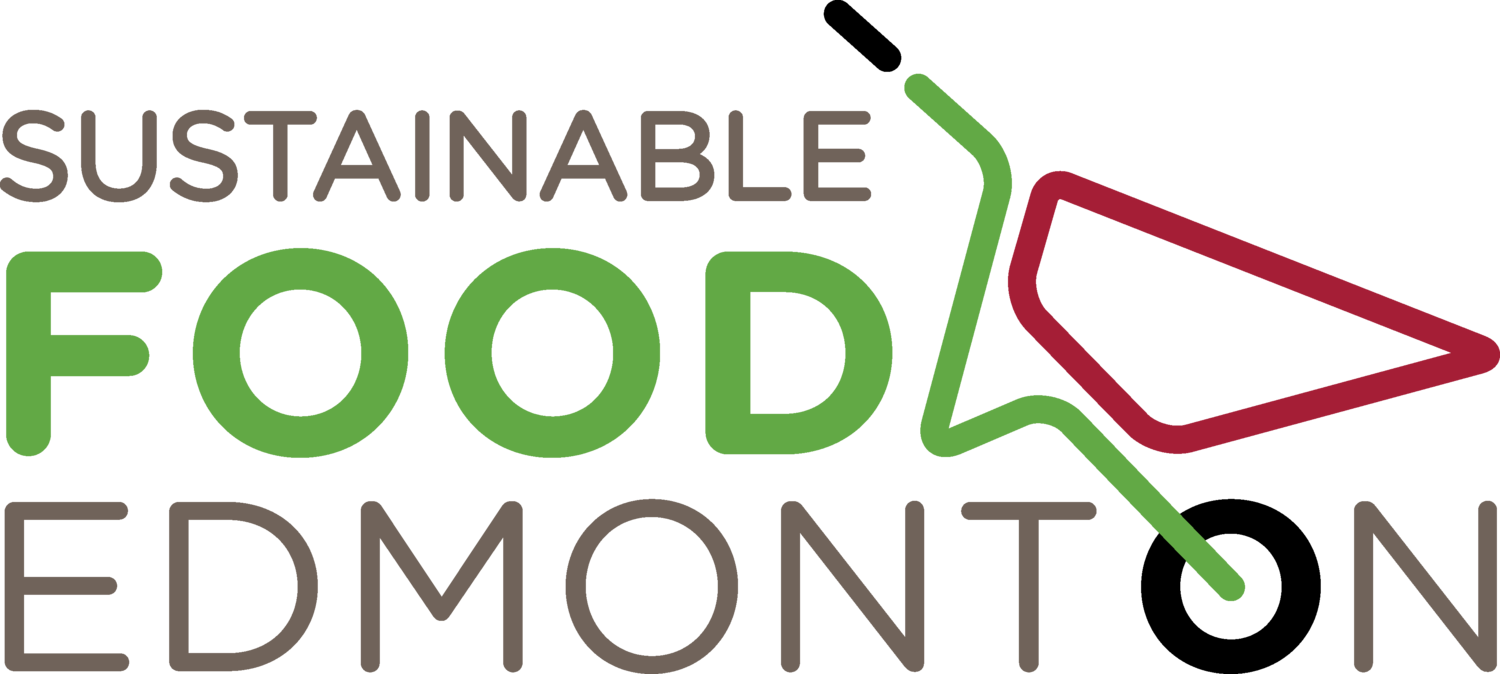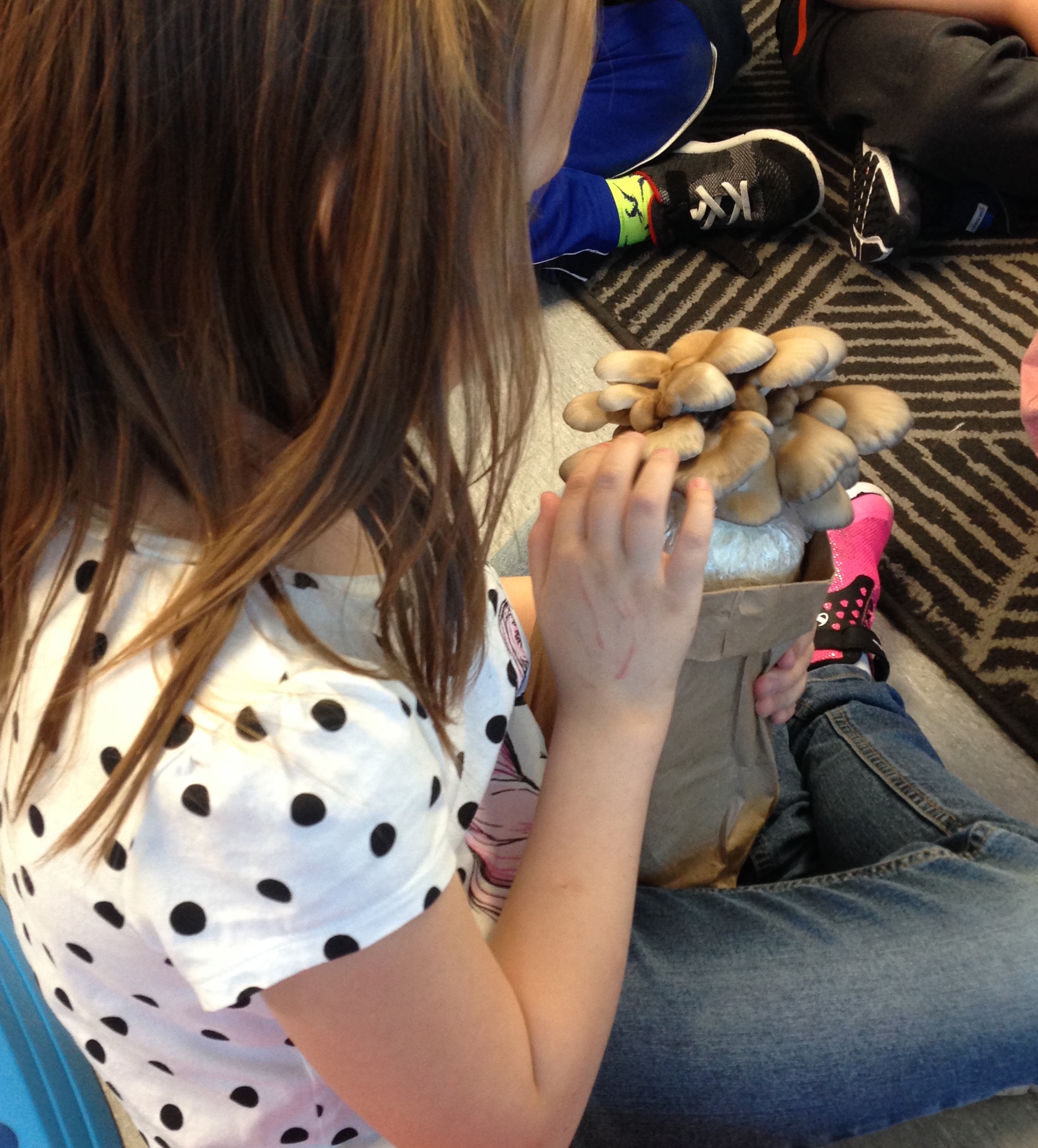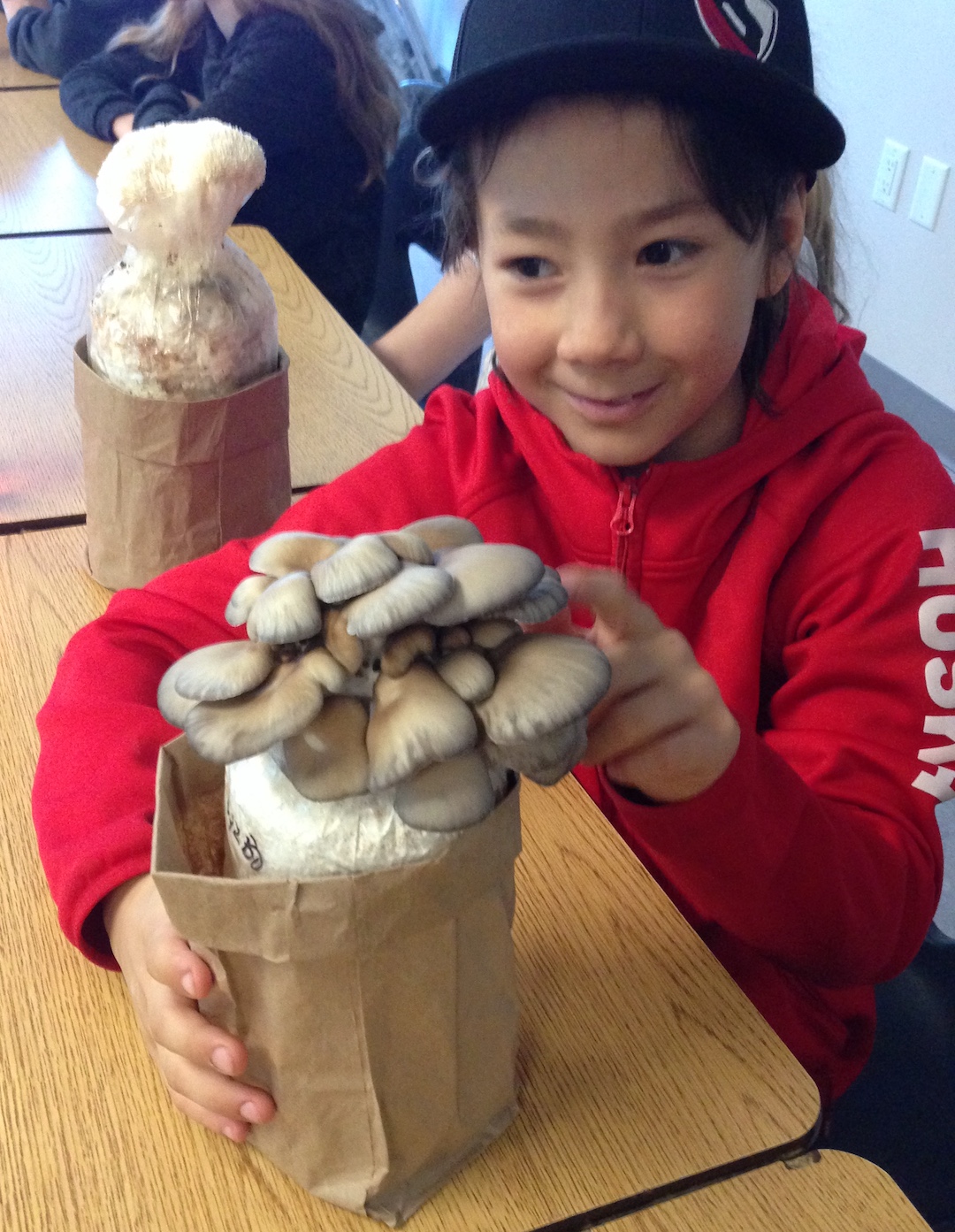Our local food comes from many sources: from farms large and small, from urban farms and gardens. And for food plants to grow well and produce, we need lots of pollinators, including our native solitary and bumble bees, as well as honey bees kept in hives. In the last couple of weeks, more than 420 students in our Little Green Thumbs classes had an opportunity to learn from one of our valued speakers. All of them have a passion for healthy food production in our province.
We were happy to welcome Albert Schermers from s4greenhouses into several classes to share the story of how his family grows delicious veggies we can purchase at local markets. Students were impressed to see photos of beautiful tomatoes, peppers, cucumbers, lettuce and beans growing in large greenhouses. While our indoor gardens require supplemental lighting, the veggies grown by the Schermers in Lacombe use sunlight that penetrates the protective greenhouse plastic. From January to early December, the plants are tended indoors. Bumble bees, ladybugs and other beneficial insects help to keep pesky bugs in check. The students had many great questions for Albert and we hope the presentation encourages them to choose veggies on a regular basis for healthy nutrition.
Another type of farm the students learned about was the Harrold Family Farm, located near Lamont. Trudy and Kirk Harrold, together with other family members, have a beef cow-calf operation and they grow many crops, such as barley, wheat, oats, canola and yellow peas. The crops help to feed the cattle and the surplus is sold for human food. Many wild animals, birds and insects also make their home on the land – a great sign of a healthy landscape and that the Harrold’s environmental farm plan is working.
The Harrolds have installed solar collectors on a building and are excited that they will be almost doubling the area this coming year, increasing the amount of electricity produced and used. Surplus power will be fed back into the grid, and therefore, the Harrold Family Farm produces both crops of food and electricity for us.
“Urban Farmer” is a new concept for many students. A class of Grade 1 students in west Edmonton had many questions for Dr. Chanchan Wang, who grows gourmet mushrooms and mushroom kits right in our city. Some of the children wondered if she keeps animals and grows food plants on her urban farm, and they were a little bewildered to learn that a farmer does not necessarily keep animals, and might live right next door to us in the city. The students admired and passed around Lion’s Mane, Oyster and Reishi mushrooms that all grow at different rates, and provide us with food, medicine, and building products. After the presentation, the Grade 1 class went for nature walk and discovered some mushrooms in the wild. They were interested in contacting Dr. Wang to learn more about the mushrooms they found.
Most people are familiar with the important role of honeybees in pollinating orchards and gardens. Knowledge about our native bumblebees and solitary bees is also growing, and so it was a pleasant surprise when a Grade 1 student proclaimed that he read a book about leafcutter bees! Patty Milligan with Northlands helped the students sort out the similarities and differences between bees, such as their lifecycle, numbers, and their role in rearing their young. The students had a great time dressing up as beekeepers and exploring bee equipment in a hands-on way.
Our presenters did a fabulous job adapting their stories to different age groups and class sizes. Their time, willingness to share life as a farmer and dedication to food production is greatly appreciated!
If you know of someone interested in visiting some Little Green Thumbs schools to speak about food production, please contact us.
Claudia Bolli, Little Green Thumbs














